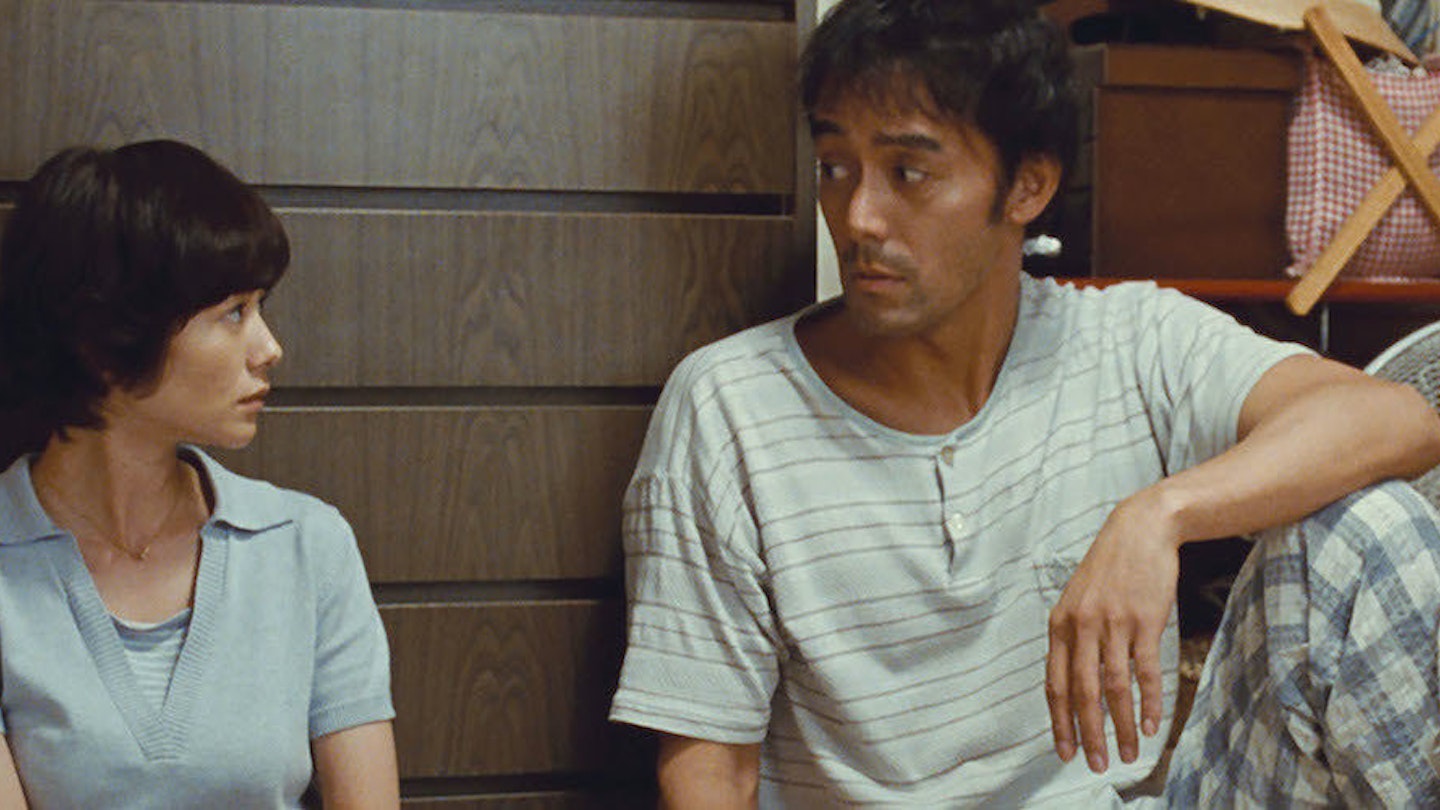Writer-director Hirokazu Koreeda specialises in quietly affecting, nuanced films about regret and relationships — perhaps reasonable Western equivalents would be Kenneth Lonergan or Mike Leigh. After The Storm is a title that perfectly describes the situation in which we meet protagonist Ryôta (Abe). The rangy, hangdog guy is on the cusp of middle-age, well after the biggest dramatic events in his life have blown up and run their course. His prize-winning debut novel (The Empty Table) came out 15 years earlier and he’s never managed a follow-up. The gambling-addicted father whose mistakes he’s been repeating, as he squanders any earnings he gets on sucker bets, has died. And his marriage to the long-suffering Kyoko (Yoko Maki) has ended in divorce after a hundred small disappointments, jeopardising his relationship with his wary young son.
A film that sticks in the mind long after viewing.
The first half of the film is almost comic in its depiction of Ryôta as a sleaze. Having taken a job as a legman for a firm of private detectives under the pretence of researching his next novel, he stalks dubious characters on behalf of suspicious relatives. When he catches his targets in any wrongdoing, Ryôta promises to withhold evidence if they cough up blackmail money. A woman caught cheating hires him to spy on her husband, the original client — something Philip Marlowe or Jim Rockford would never do. Ryôta also puts his professional creeper skills to use spying on his ex and her new boyfriend, seething when the guy buys the kid a baseball glove. He is only able to get the shoes to go with the glove by pulling a petty scam on a sales clerk. Plainly sabotaging his own life, Ryôta fritters his crooked earnings on long-shot bike race bets and lottery tickets rather than paying the maintenance Kyoko needs and brushes aside the offer of a writing gig on a manga. He even searches his loving mother’s flat for pawnable items, only to find his canny sister has hidden the old woman’s pension
funds, and his father has picked the cupboard bare before dying.
The second act is set on a long Sunday Ryôta spends with his son, which segues into a stay-over at grandmother’s tiny apartment during a typhoon — as the old matchmaker tries to convince the divorced couple to get back together. There’s more comedy of excruciating misunderstanding, and underplayed, powerful drama with Ryôta and his ex-wife and (especially) a heartbreaking little chat between Kyoko and her ex-mother-in-law. It’s all about the little tells, as Ryôta — who is supposed to be insightful as a writer and a private eye — fails to realise something vital about his own upbringing, which he is unconsciously repeating with his own son. A storm arrives for the climax, with Ryôta and son sheltering in a playground as a parental access visit turns out sweetly (yet also disturbingly) like a play-date.
After The Storm initially seems plotless, but then the themes come sharply into focus. And the performances are so intense and natural it takes a while to get in sync with the storytelling. Nothing is quite cut and dried, and there’s no great moment of redemption or disaster. It’s the sort of film that slips past easily, but also one that sticks in the mind long after viewing.
